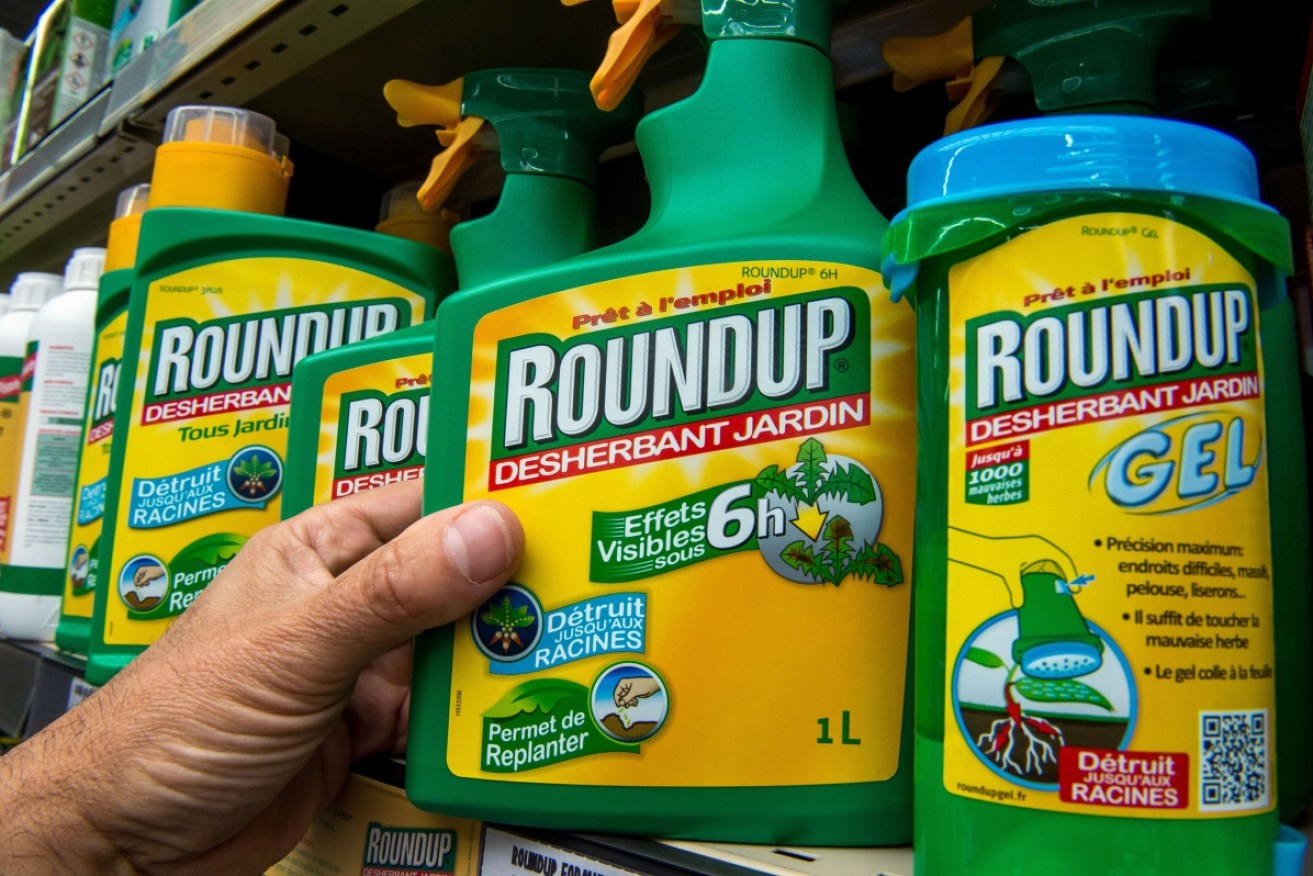Why a controversial ‘carcinogen’ is in popular weed killers


Bayer will pay out billions of dollars to settle lawsuits filed over Roundup. Photo: Getty
Consumers have been warned to err on the side of caution when using popular weed killers such as RoundUp, as the controversial main ingredient – glyphosate – becomes the centre of an investigation.
Glyphosate is present in more than 500 products sold in Australia including Monsanto’s RoundUp (which was acquired by Bayer earlier this year) as well as cheaper alternatives Hortico, Yates and Brunnings at household hardware stores and supermarkets.
These products are widely used by consumers in backyards, gardeners in public places such as schools, and the farming industry.
The weed killer is sprayed on the leaves, where it is absorbed, and travels down to the roots where it poisons the plant.
But some research has linked the chemical to a type of blood cancer called Non-Hodgkin lymphoma in humans, in mostly agricultural workers. However, conflicting findings has meant the overall evidence remains inconclusive.
Expert toxicologist Dr Ian Musgrave said human epidemiological studies have typically reported exposure through skin and inhalation. There are also ingestion risks if you eat or drink after using the product, without first washing your hands.
An ABC Four Corners investigation revealed on Monday that Cancer Council Australia has now called for an independent review into the potential dangers of glyphosate in Australia.
This comes two years after the International Agency for Research on Cancer classified the chemical as a “probable carcinogen”.
It also comes just months after a landmark case in the United States in which a Californian school gardener, 46, was awarded $395 million in damages when a jury ruled RoundUp liable for his terminal cancer.
This decision was later appealed and the matter is before the courts. The case could set a precedent for more than 800 cancer patients suing Monsanto.
Overseas, there have been moves towards banning glyphosate in France, Argentina and Belgium, and the Czech Republic has imposed major restrictions on its use.
However, the Australian Pesticides and Veterinary Medicines Authority maintains that products containing the chemical are “safe to use” provided care instructions are followed. It claims there are “no grounds” for a ban.
Cancer Council chief Sanchia Aranda told The New Daily it was not calling for a ban on the chemical.
“There needs to be a systematic collection and review of data on exposure in Australia, so we have a clearer picture of the protections in place in the workplace,” she said.
“People should minimise the use of the product if it’s not necessary and those who do work with it should take health and safety precautions.
“Safety data sheets usually advise wearing eye protection, a respirator with replaceable filter, rubber gloves, and cotton overalls buttoned at the neck and wrist.”
Cancer prevention and causes expert Professor Bruce Armstrong said he welcomed the Cancer Council’s push. An independent investigation was much needed, he said.
Monsanto has been previously found to ghostwrite favourable ‘scientific’ research articles and pay academics to attach their names to the paper, according to the ABC.
“There is a concern that some of the research out there has been influenced by industry and this is one reason why some studies may not necessarily be viewed as credible,” he told The New Daily.
“So I think an independent inquiry would be very wise – to look at all the evidence for both household and professional use.
“We know glyphosate can cause mutations in DNA, and we know that chemicals that can cause mutations are quite likely to cause cancer.”
Physical chemistry expert Dr Chris Thompson said the vast majority of Australians would be at “extremely low risk” through consumption of produce with glyphosate residue.
“The more likely risk would be people working in the agricultural industry, where they might be subjected to a large dose, or many, many small doses over time,” he said.
“But if you drank it you would get very sick. Strong concentrations, such as the bottles of concentrate you can purchase from Bunnings, would have the potential to burn the skin if accidentally spilt.
“It’s safe when used properly, but large doses would not be good for people or pets. Keep your dog away from the garden for 24 hours if you are spraying weeds.”
Dr Thompson advised that anyone concerned about potential carcinogenic risks could use acetic acid – white vinegar – as an alternative to glyphosate.
The New Daily sought comment from Monsanto.








